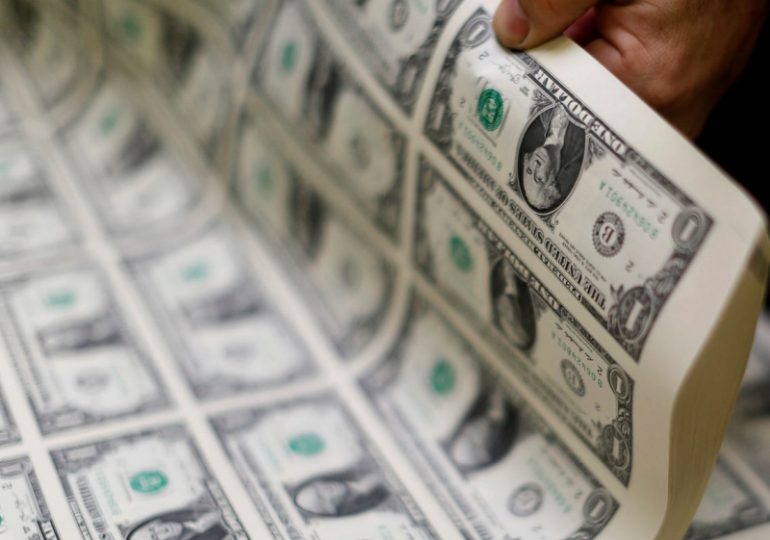Previous one-month record for the budget deficit was $234B in February 2019
The U.S. budget deficit soared to a record $864 billion in June, as federal revenues dried up and spending surged to help offset the economic pain of the coronavirus pandemic, according to a new report from the Treasury Department.
The gap between what the government spent and what it collected was more than 107 times what it was last June. Before the pandemic, the previous one-month record for the budget deficit was $234 billion in February 2019.
One reason for the decline in receipts was the administration’s decision to extend the tax filing deadline from April 15 to July 15. That could entail a considerable increase in receipts next month.
“We would expect a significant portion of that to be caught up after July,” a senior Treasury official told reporters during a call.
Federal spending rose to more than $1.1 trillion in June, a 223 percent increase from last year, because of the massive government response to the virus outbreak and the related economic lockdown.
The unprecedented level of spending pushed the nation’s deficit for the first nine months of the fiscal year to $2.7 trillion.
Nearly half of the outlays in June stemmed from the Paycheck Protection Program, the $670 billion rescue fund designed to keep small businesses afloat and avert mass layoffs. It accounted for almost half of the government’s spending — roughly $511 billion.
The deficit for fiscal 2020 is expected to hit $3.8 trillion, a record, according to a projection from the Committee for a Responsible Federal Budget.
The current record for a fiscal year deficit is $1.41 trillion, set in 2009.
The report comes as Congress and the Trump administration prepare to intensify negotiations on another round of virus-related aid once lawmakers return to Washington from their two-week Fourth of July break.
"Forbes Georgia-ის სარედაქციო ბლოგპოსტების სერია "როგორ გამდიდრდა“ და "საქართველო რეიტინგებში".














